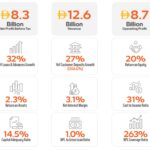Pakistani TikTok sensation Sajal Malik has finally spoken out amid the controversy surrounding an explicit video allegedly featuring her that went viral on social media. The clip, which surfaced on April 22, 2025, sparked a heated online debate over its authenticity and led to intense scrutiny of Malik’s online persona. In a strong public statement, Sajal has categorically denied any involvement, calling the video a “complete fake” and describing the entire experience as “mentally haunting.”

The 25-year-old influencer, best known for her popular street interviews and social commentary, took to her platform to address the issue directly, expressing deep emotional distress. Malik emphasized that the video is part of a malicious attempt to defame her character, stating that it’s not just online trolling but a clear case of character assassination and digital exploitation.
To pursue justice, Sajal has filed an official complaint with Pakistan’s Federal Investigation Agency (FIA) and is urging authorities to launch a thorough probe to identify the perpetrators. She also called on the public to be more responsible online, stressing the importance of digital dignity and privacy for all—especially public figures.
The controversy has split social media users, with some offering support and others engaging in cyberbullying. Malik’s fans have rallied behind her, using hashtags and campaigns demanding justice and greater accountability for cybercrime in Pakistan. With over 176,000 followers on TikTok, her digital presence has taken a hit, but her vocal stance is being praised for its bravery.

This incident follows similar controversies involving Pakistani influencers like Minahil Malik, Zernab Shastri, and Imsha Rehman, who have also been targeted in leaked video scandals. These repeated breaches highlight the urgent need for stronger digital laws and protections to safeguard individuals from false accusations, misinformation, and privacy violations.
As the FIA investigation moves forward, all eyes are on how the case unfolds and what it could mean for the future of online accountability in Pakistan.







